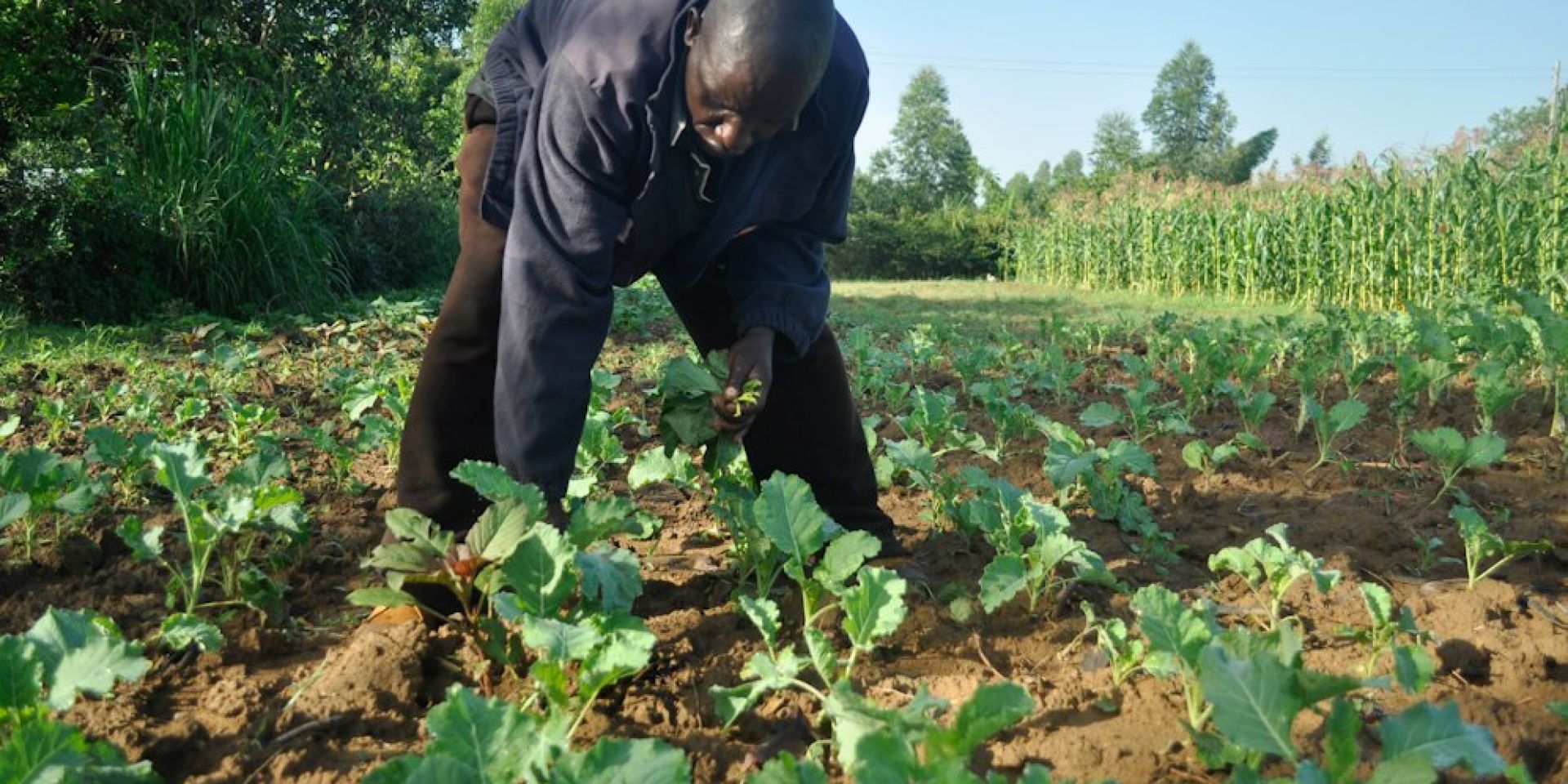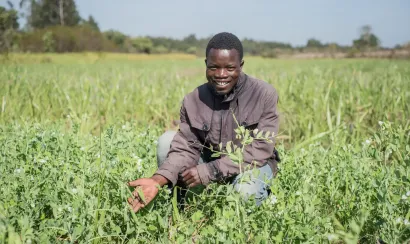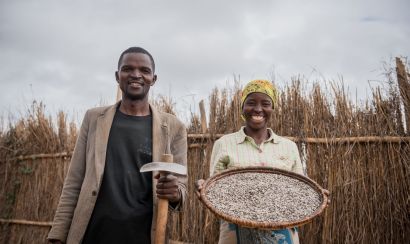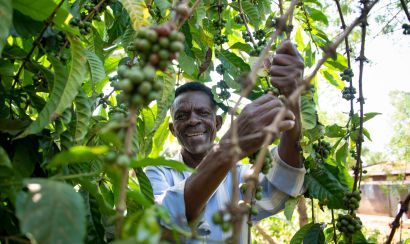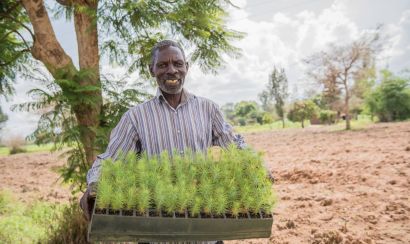Harvesting the Best Sukuma In Town
In 1826, French gastronomist, Anthelme Brillat-Savarin, wrote the famous line “Tell me what you eat, and I will tell you what you are.”
Put simply, what we eat impacts how we live.
Nothing could be truer for East Africa’s smallholder farmers. With most days spent on their feet, working long hours of manual labor under a hot sun, getting enough food is only part of the equation. At One Acre Fund, we understand that the type of food they’re eating is critical as well.
Meet Jacob Nabilayi
When it comes to healthy eating, farmers in Muyayi, Kenya, say they have a reason to smile. With the help of One Acre Fund, Jacob Nabilayi and his fellow farmers are feeding his village with one of the most nutritious vegetables out there: collard greens, known locally as sukuma wiki.
Every year, One Acre Fund offers 50 grams of sukuma wiki seeds to each of its farmer clients in Kenya. Since he joined One Acre Fund in 2010, Jacob says the 50 grams of seed he receives each season has helped him improve his diet and build a booming business in his village.
At the end of March, Jacob ensures a small portion of his farm is well prepared and ready for sukuma planting. Two weeks after planting in a seedbed, he transplants his seedlings to a larger plot. Only one month later, the sukuma is ready for harvesting.
Growing sukuma is ideal for Jacob’s situation. He owns a half-acre farm, and with the limited space he needs to save room for other crops. Sukuma works because it doesn’t require much space to grow.
“I don’t need to own a large piece of land to plant sukuma. This is an advantage to me because I have a small farm where I plant other crops too,” Jacob says.
In the months that follow, Jacob harvests 55 pounds per week and makes the equivalent of $18 when he sells. He is able to harvest and sell from this same plot for four continuous months. After that, he starts the whole planting process over again with the remaining half of his seeds.
Jacob doesn’t only sell sukuma. He eats it too.
Before he started farming it, he used to spend $0.69 every day on sukuma to feed his family—money that he now saves for other items.
For the eight months each year when Jacob is harvesting sukuma, people flock to his home.
“People love my sukuma wiki because I don’t use any chemicals to boost its growth. It is all natural,” Jacob says.
Anne Barasa, one of his customers, describes Jacob’s sukuma as the best she has ever had.
“Jacob’s sukuma is soft and tasty, and he sells it at an affordable price. My children even notice the difference when I buy sukuma from someone else,” Anne laughs.
Customers are not the only ones who love Jacob’s sukuma—his family does too. His children particularly, have developed a keen taste for it. He says they demand it as part of every family meal.
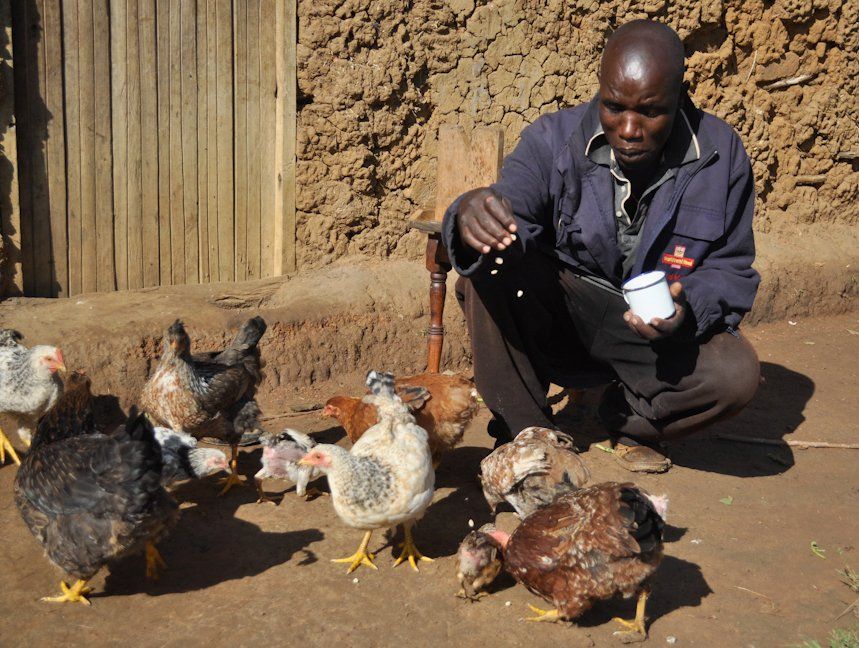
With the profit he made in the last three years, Jacob was able to invest in his business. He expanded into poultry, buying chickens and a rooster which he now breeds from his home. His goal is to make enough money to eventually invest in a dairy cow.
With his sights for the future set high, Jacob also plans to increase the amount of sukuma he plants. This will come as welcome news to residents of Muyayi, who can't get enough of Jacob’s tasty and nutritious greens.
